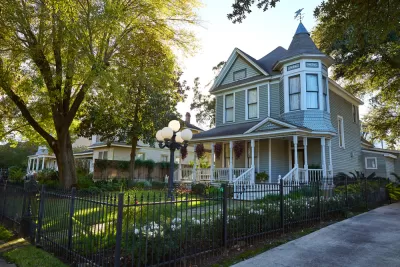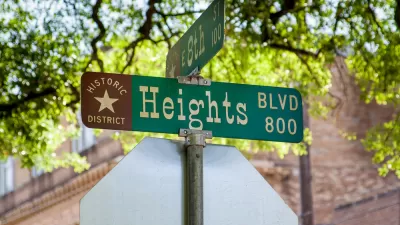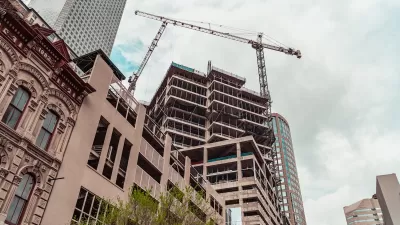A proposal by the city’s mayor would create a new type of preservation district designed to protect historic structures and slow gentrification.

Critics of a proposal by Houston mayor Sylvester Turner to create ‘conservation districts’ that would protect historic structures and enable infill development in historic neighborhoods in the traditionally zoning-averse city say the mayor’s plan won’t stop gentrification and could hinder new housing construction, reports Yilun Cheng in the Houston Chronicle.
According to Anika Singh Lemar, a Yale Law School professor who studies land use, zoning, and housing issues, “regulating the density or appearance of new housing construction does not make a gentrifying area less desirable and will lead to even less affordability due to the artificial constraints on the local housing supply.”
While the ordinance has not yet been passed by the city council, some neighborhood groups are eager to take advantage of the program once it’s in place. As Cheng writes, “Freedmen’s Town, Independence Heights, Magnolia Park and Manchester could be among the first areas to participate in the program, if it is approved by council, according to Wallace Brown.”
Supporters of the program say it could help communities preserve historic architecture and maintain ‘neighborhood character’ while allowing for new development. Margaret Wallace Brown, director of Houston’s Planning and Development Department, says that conservation districts could be less complicated for property owners by having more flexible requirements for historic preservation that make it easier to preserve older housing.
The ordinance will likely be voted on by the full city council this month.
FULL STORY: Turner wants to fight Houston gentrification with conservation districts. Critics say it won't work.

Planetizen Federal Action Tracker
A weekly monitor of how Trump’s orders and actions are impacting planners and planning in America.

Restaurant Patios Were a Pandemic Win — Why Were They so Hard to Keep?
Social distancing requirements and changes in travel patterns prompted cities to pilot new uses for street and sidewalk space. Then it got complicated.

Map: Where Senate Republicans Want to Sell Your Public Lands
For public land advocates, the Senate Republicans’ proposal to sell millions of acres of public land in the West is “the biggest fight of their careers.”

Maui's Vacation Rental Debate Turns Ugly
Verbal attacks, misinformation campaigns and fistfights plague a high-stakes debate to convert thousands of vacation rentals into long-term housing.

San Francisco Suspends Traffic Calming Amidst Record Deaths
Citing “a challenging fiscal landscape,” the city will cease the program on the heels of 42 traffic deaths, including 24 pedestrians.

California Homeless Arrests, Citations Spike After Ruling
An investigation reveals that anti-homeless actions increased up to 500% after Grants Pass v. Johnson — even in cities claiming no policy change.
Urban Design for Planners 1: Software Tools
This six-course series explores essential urban design concepts using open source software and equips planners with the tools they need to participate fully in the urban design process.
Planning for Universal Design
Learn the tools for implementing Universal Design in planning regulations.
Heyer Gruel & Associates PA
JM Goldson LLC
Custer County Colorado
City of Camden Redevelopment Agency
City of Astoria
Transportation Research & Education Center (TREC) at Portland State University
Camden Redevelopment Agency
City of Claremont
Municipality of Princeton (NJ)





























